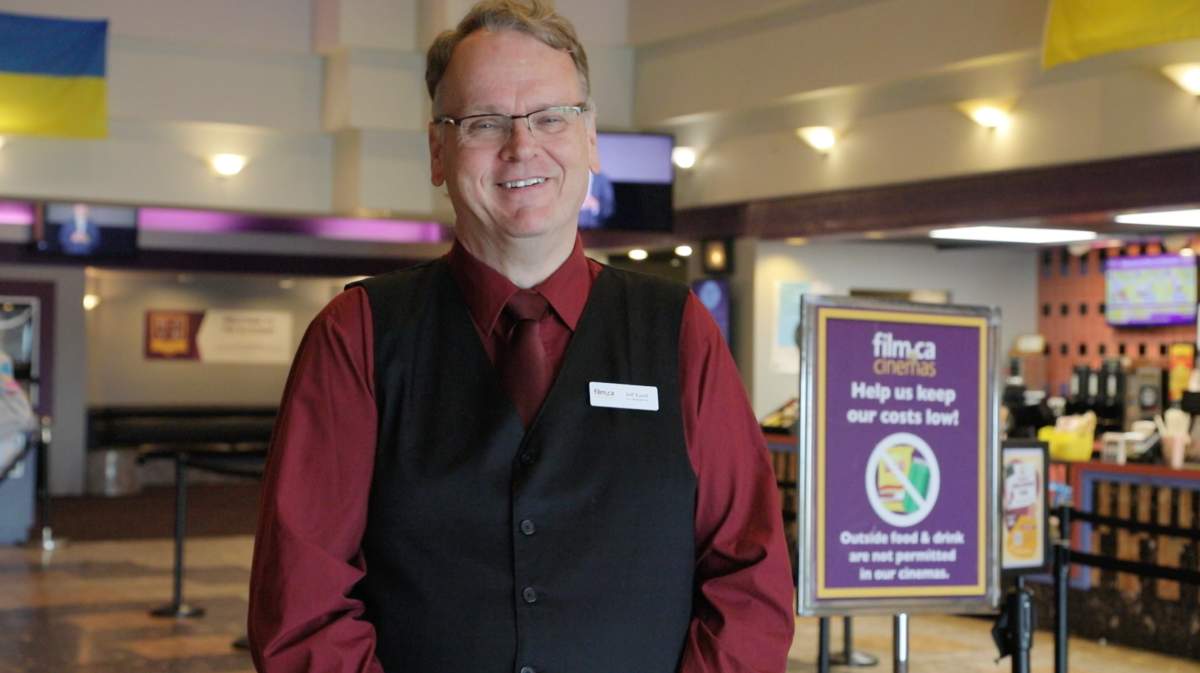The Barbie movie and Oppenheimer have been unstoppable since their simultaneous release July 21, but insiders say it’s hard to predict whether they have truly revived the movie theatre industry from pandemic hardships.

Cineplex announced Tuesday that it reached its highest July box office of all time mainly due to the highly anticipated Barbie and Oppenheimer movies with 6.8 million guests visiting a Cineplex nationwide last month.
An Oakville, Ont., theatre, Film.ca Cinemas, has also been busier than usual this July.
CEO Jeff Knoll says the particular pairing of Barbie and Oppenheimer — coined ‘Barbenheimer’ by the public for their same-day release — caused a fairly substantial audience re-emergence.
“These two films reach two very distinct demographics, so we’re seeing a whole lot of friends and locals coming back to the movies, which has been amazing for us,” Knoll told Global News.
Knoll says seeing audiences arrive in waves at his theatre dressed in pink for Barbie, or in suits for Oppenheimer, has made him feel “cautiously optimistic” about the future of the movie theatre industry.
“Hopefully (audiences) will realize how much they miss the cinema-going experience and they’ll be anticipating all the great movies ahead,” he said.
However, Knoll says the real test of how effective ‘Barbenheimer’ has been in the revival of the movie theatre industry is in the coming months.
“Prior to ‘Barbenheimer,’ we had the new Indiana Jones film, Mission Impossible, neither of which did very well. So it’s a case-by-case basis. Are people ready to come back to the cinema for the sake of coming back to the cinema? I don’t know,” Knoll said.

Get breaking National news
“Movie theatres don’t drive movie-going. Movies drive movie-going.”
The COVID-19 pandemic caused movie theatres to shut their doors in 2020, while studios postponed their biggest titles. Prolonged lockdowns saw many theatres in North America unable to open back up, and even when the survivors gradually opened, a chunk of audiences had become accustomed to watching flicks from home.
Cineplex, the largest cinema chain in Canada, reported massive losses during the pandemic and turned to layoffs to save any funds it could as bills from landlords, studios and concession stand suppliers came due.
Knoll says what saved the movie theatre industry is something that has been proven time and time again: people love going to the movies.
“We survived television, we survived video on demand. Every generation there’s another threat to movie theatres, but we survived. If people want to support us, and I hope they do, they need to vote with their feet and enjoy movies the way they’re meant to be seen,” Knoll said.

Cineplex president and CEO Ellis Jacob echoed Knoll’s sentiments, saying in a release Tuesday that the “record-breaking July box office demonstrates movie-lovers’ strong desire for sharing the experience of a movie in a social setting, immersed with big screens and big sound that you can’t replicate at home.”
“We are thrilled about the remarkable results, welcoming over one sixth of the Canadian population into our theatres last month, where they were captivated by a strong supply of unique and engaging content,” he said.
Comscore senior media analyst Paul Dergarabedian says the spread of ‘Barbenheimer’ on social media exponentially raised the profiles of both films prior to their release, which made the must-see factor much higher.
“We’ve just never seen anything like this. Other really big movies have done really well before … but this is different. This is two movies from rival studios that actually helped each other,” Dergarabedian told Global News.
By the time opening weekend arrived, both films raked in double what was projected. According to Dergarabedian, Barbie was expected to open with approximately $70 million domestically and ended up with $162 million.
Two weeks in, both movies combined have already surpassed $1 billion at the worldwide box office.
Dergarabedian, who has been tracking and analyzing box office for 30 years, says the ‘Barbenheimer’ phenomenon is the movie theatre industry at its best, but the ongoing Hollywood strikes may hinder how long it can ride this wave of success.
“The ‘Barbenheimer’ phenomenon shows what happens when the industry is firing on all cylinders, meaning when the writers are happy and writing and the actors are acting and the marketing developments are creating great marketing plans, then the movie theatres are developing a great experience,” Dergarabedian said.
“So we hope the strikes get resolved sooner than later because the longer this goes on, the more profound the effect and the implications for the industry.”

Hollywood’s actors’ union, the Screen Actors Guild-American Federation of Television and Radio Artists and writers’ union, the Writers Guild of America have been on the picket lines for about a month as they seek better wages from studios and protections from artificial intelligence.
Very few productions are in the works as a result, raising questions about what movie theatres will even be able to show in a year or so.
“Theatres have to have content, they have to have movies. Running older titles certainly worked during the pandemic, drive-ins were playing Back to the Future … but you can’t really sustain the actual business just based on that,” Dergarabedian said.
“The only way movie theatres can sustain this is with big, high-profile movies that drive lots of people to the movies.”
Knoll says he hopes the public supports local theatres like Film.ca during this time.
“(The pandemic) had a major impact on cinemas, but we’re hearing from the public that they want us to be here,” Knoll said.
“They need to vote with their feet and with their dollars.”









Comments